The year 2019 is notable for a lengthy list of strong shows and performances and change. The arrival of two new giant streaming services in Disney+ and AppleTV+ was an emphatic reminder that this is a new age. How new? Well, think only in the Canadian context and note that 2019 started with a CBC reboot of Street Legal, promptly cancelled, and the year ended with the removal of Don Cherry from his perch on Hockey Night in Canada. The old days are so over. And so is Game of Thrones, which finally ended with more of a whimper than a wallop.
The Globe and Mail’s Top 10 films of 2019
If Game of Throne’s ending proved to be less than the climactic event promised, that whimper also proved a point – the most electrifying TV is often about real events or figures anchored in the real world, not fantasy. Sometimes, TV is about escapism, and sometimes, as it was so thoroughly this year, it is on a sustained truth-seeking mission. From live sports events such as the galvanizing and politicized FIFA Women’s World Cup to the farcical moral morass of the impeachment hearings in Washington, to biting scripted dramas, it was a searing, unsettling year.
The year opened with startling content in that category. Brexit: The Uncivil War, a one-off movie on HBO in January was uncannily on-the-nose. About the 2016 Brexit referendum, it had Benedict Cumberbatch as Vote Leave campaign director Dominic Cummings, a man credited with masterminding and manipulating the narrow victory for the Leave side. By fall, the real Cummings was installed as Boris Johnson’s top adviser in Britain. Later in the year, there was Showtime’s chilling series The Loudest Voice (on Crave in Canada), about Roger Ailes and how he created and shaped the Fox News network and made it both the mouthpiece of the Republican Party and also a toxic workplace.
The Lifetime documentary series Surviving R. Kelly (later streamed on Netflix) affected and shifted a national debate in the United States about sexual abuse. Amazon Prime Video’s Lorena documentary series changed everyone’s view of Lorena Bobbitt, a woman whose story was perverted and mocked for decades. PBS’s Mrs. Wilson dramatized with bleak poignancy the true story of Alison Wilson, who after the death of her husband, an intelligence-service officer, discovered he had several other families. Adding to the authenticity was actress Ruth Wilson playing her own grandmother.
Much cable and streaming content veered from eccentric to brilliant and even the masterpiece level was reached, certainly in HBO’s Succession and FX’s Fosse/Verdon. Stories of women, told by women, was a strong category unto itself, from the mystery-box comedy drama of Russian Doll to the achingly beautiful and slyly funny lesbian period drama Gentleman Jack on HBO. Pessimistic and disturbing dramas about political power and the near-future were rampant, with the HBO/BBC drama Years and Years being the most piquant.
And then there’s Netflix, now responsible for a startling renaissance in teen dramas and comedies of sharp sophistication, bringing us Daybreak and strong new seasons of The End of the F***ing World and Atypical. In the same teen category, there was HBO’s Euphoria, a drama so realistic and loaded it was aptly described as a “hand grenade” tossed into the teen category.
As the year ends, Disney+ may claim that its Star Wars spinoff The Mandalorian was the most-watched new series of 2019, but it assuredly was not the most memorable. That arena of truly memorable is dominated by content linked to the real and the now.
Twelve shows that mattered
Succession (HBO)
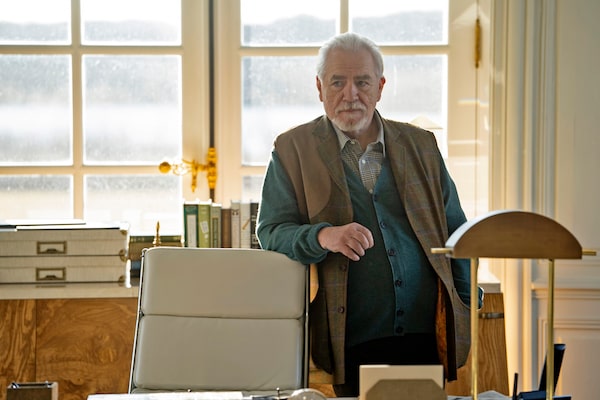
HBO / Crave
The second season took the series to a new and intense level of acumen about the super rich who control the world. It was breathtaking. The theatricality of it was astonishing, amounting to a succession of horror stories about greed and grievance that beats anything else on TV this year. Remarkably, it found poignancy in repulsive people – you cared about Kendall and Shiv – and in its depth of insight into the emotional machinations of the filthy rich it proved that the best of TV drama matches the novel in penetrating observation of characters both relatable and monstrous.
Fosse/Verdon (FX)
Pari Dukovic/FX
Uniquely structured as an array of scenes of triumphs and failures leading up to Bob Fosse’s death, the eight-part drama became a dark, almost sorrowful portrayal of a marriage. Fosse’s genius in dance and choreography shone through, but Sam Rockwell as Fosse and Michelle Williams as Gwen Verdon took the story of an attention-seeking genius and long-suffering muse and mate to a plane of relationship wreckage that was truly piercing.
Russian Doll (Netflix)
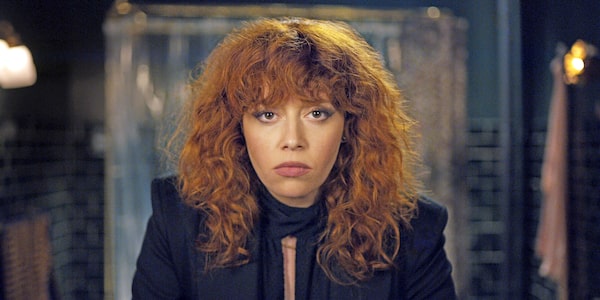
Courtesy of Netflix
Fiendishly clever, this very binge-worthy creation by Natasha Lyonne, Amy Poehler and Leslye Headland is about virtue and mortality, but delivered with a vicious sense of pungent humour. And it’s a genre-breaking journey. At first, it feels like another variation of Groundhog Day as Nadia (Lyonne), an acid-tongued, chain-smoking woman, celebrates her 36th birthday. This celebration happens over and over, but as the layers peel back, Russian Doll is less about this woman than it is movingly about her community and her mother.
Euphoria (HBO)
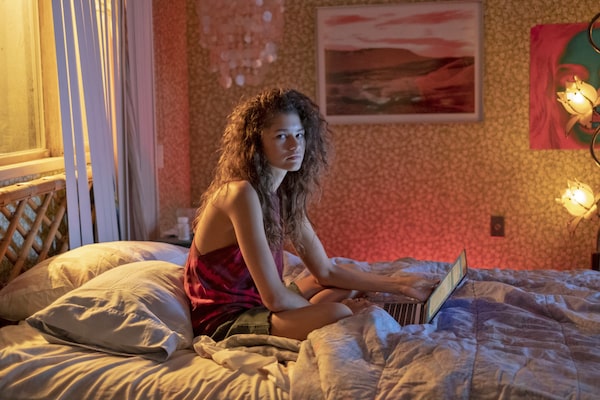
HBO / Crave
Called “toxic” and “grossly inappropriate” by elements of the right-wing media, Euphoria is neither. Yes, it’s soaked in sex and drugs, but unless you’re stunned by the news that teenagers indulge in drugs, casual sex and have expert knowledge of porn, it isn’t so shocking at all. In fact, it is a gorgeously made, rather bleak but sensitive portrait of a particular generation. The series takes the view that teenagers stumble through the arenas of getting high, having sex and dealing with peer pressure and depression as though their parents didn’t exist. It got stronger by the episode and became engrossing, serious-minded adult storytelling about youth today.
Chernobyl (HBO)
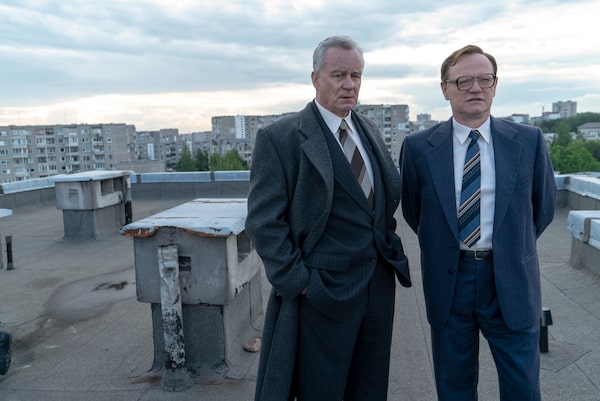
HBO
An instant classic, Chernobyl is hard to watch not just because of its grim, realistic depiction of what happens to those exposed to radiation. It’s about the relentless campaign by those in power to deny mistakes, deny the existence of chaos and harm, and then spread misinformation. That part of it is as intense as the frightening dramatization of the first hours of the nuclear disaster at a town in Soviet Ukraine in 1986. Jared Harris is magnificent as a nuclear physicist who knows the truth.
Fleabag (Amazon Prime Video)
Amazon Prime Video
Perhaps not the masterpiece some claim it to be – it has a very British, middle-class perspective – Fleabag’s second season still had undeniable power. Phoebe Waller-Bridge put so much verve and boldness into it that the show had a world view rather than an attitude or tone. That world view is essentially about the value of being jovial about grief, faith and family relationships. For all its hilarious specifics about the central character’s neuroses, it all really about being hopeful.
Country Music (PBS)
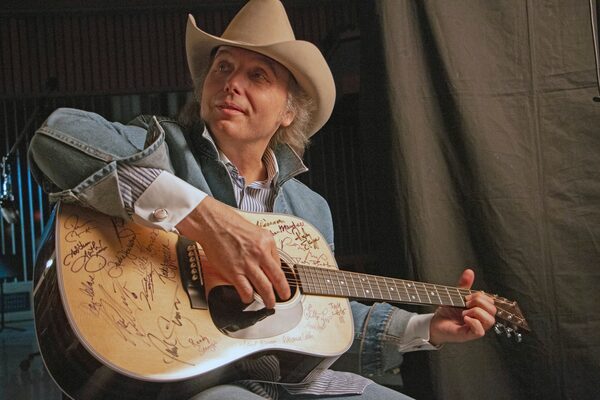
Jared Ames/PBS
There are flaws in Ken Burns’s epic eight-part 16-hour history of country, and gaps in the story, but the complex, maddening history of the genre is there in all its messiness – the contrarian artists, the hucksters, the racists, the corporate-greed thieves, the broken-hearted and the triumphant people who anchored their artistry in their roots in rural America. The tensions between urban and rural are there, too, and the battling sensibilities of the East and West coasts. In the end it’s a tad too much his-story rather than her-story, but if you’re looking for America, you’ll find it here.
On Becoming a God in Central Florida (Showtime/Crave)

Patti Perret/Handout
Set in the early 1990s, the drama is about Krystal Stubbs (Kirsten Dunst), a struggling mother, former pageant queen and wife to an insurance salesman. The couple are at the bottom, barely making ends meet. Her husband in under the thrall of a pyramid-scheme company called FAM. Then he dies. You might expect Krystal to become the spunky widow of familiar movie entertainment. Nope. Krystal realizes no amount of pluck can rescue her from the deeply cynical world in which she exists, and she decides FAM is her way out. Hardened, knowing and her naiveté evaporated, she sets out to exploit the system that left her at the absolute bottom of the social ladder. Scathing and bleakly funny to the core.
Black Summer (Netflix)

Courtesy of Netflix
An unheralded little masterpiece of the zombie-apocalypse genre. Don’t be put off by “zombie apocalypse.” This is not like The Walking Dead or any of its spinoffs. It’s formally brilliant, politically loaded, terse and terrifying. No less than Stephen King called it, “Existential hell in the suburbs, stripped to the bone.” The stripped-to-the-bone element is one reason why it’s breathtaking. Some episodes are 20 minutes long. Others come in at about 45 minutes. Dialogue is often sparse and the pacing is relentless, often using hand-held cameras to speed up the scenes.
Cardinal (CTV)
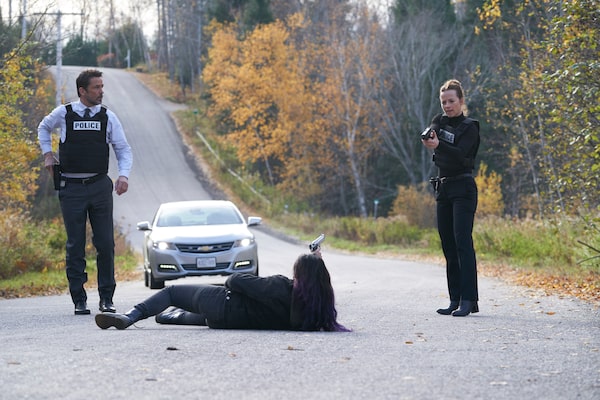
CTV
After a vaguely disappointing second outing, Cardinal returned this year as, again, superb Canadian noir. It’s a crime story that’s subtly, quietly emotional while still being a gripping thriller. It’s about a murder and a search for a killer. Or maybe several killers in cases that might be linked. But at its core, it’s about haunting and the haunted. As with the superb first season, there is remarkable stillness in it, a quality of humane intensity. The six-part series is drenched in the muted colours of fall in Northern Ontario and the muted colours help illustrate the muted lives that live there: the despair and the lust for vengeance, or lunge toward nihilism that despair can ignite. The story combines two Giles Blunt novels By the Time You Read This and Crime Machine, and Billy Campbell as officer John Cardinal and Karine Vanasse as officer Lise Delorme are sublimely good.
Years and Years (HBO)
Guy Farrow/HBO/BBC/Red Productions
A six-part miniseries, a BBC/HBO production, that is part entertaining drama about the lives of one ordinary family and part dystopian vision of the next 15 years, it’s both bittersweet and chilling. It starts now, in 2019, and projects into a post-Brexit, two-term Trump administration future. It isn’t subtle and wasn’t meant to be – it’s a polemic that manages to stay gripping and remain humane, even if there is rage and doubt simmering constantly. Anchored in one family’s story arc, it’s also about the rise of Vivienne Rook (Emma Thompson), a fringe figure rather like the pro-Brexit Nigel Farage, who, as years go by, becomes a political populist monster. Rook wants cleaner streets and fewer immigrants, and where that leads is the chilling part.
Back to Life (Showtime/Crave)
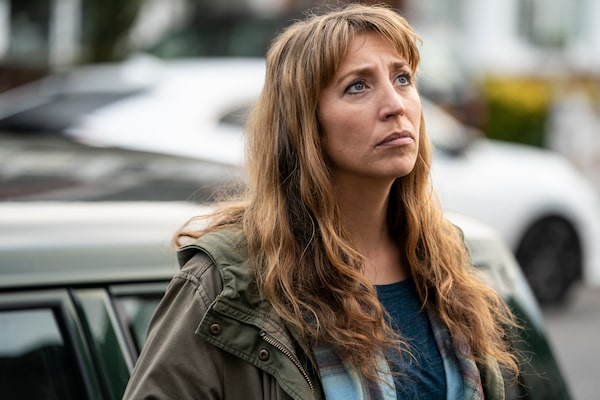
Luke Varley/Courtesy of SHOWTIME
An absolute gem in a batch of excellent series emerging from Britain recently, this strange dark comedy comes from the producers of Fleabag. Daisy Haggard plays Miri Matteson, who, after 18 years behind bars, returns home and falls chaotically back into life in the small seaside town she grew up in, and where she is now notorious. Exactly what she did to earn jail time is held back for a while. What isn’t hidden is the depth of the poignancy of her situation. Deadpan, droll and funny while being heartbreaking, it stands as a testament to the possibility of immaculate nuance in short-form TV storytelling.
Honourable Mentions
The Morning Show (AppleTV+) – an overhyped but ultimately gripping drama about the politics of morning TV and #MeToo, and it has Jennifer Aniston and Reese Witherspoon battling it out for women-on-the-verge acting impact.
Mrs. Fletcher (HBO) – this has the most audacious and brave acting turn of the year, in Kathryn Hahn’s portrayal of a middle-aged mom who, as an empty-nester, finds her mind and life exploding via her addiction to online porn.
Barry (HBO) – Bill Hader’s black comedy stormed into a second season, more disturbingly and radical than the first. Although ostensibly about a hitman-turned-actor, it’s actually a furious take on depression and recovery.
Dead to Me (Netflix) – a stony, difficult-to-define black comedy with a touch of sinister mystery thrown in, it starts with Jen (Christina Applegate), a successful real estate broker and mom grieving her late husband. At a grief-counselling session she attends warily, Jen meets Judy (Linda Cardellini), whose fiancé died suddenly of a heart attack and they bond, but Judy slowly becomes a very sinister figure.
Das Boot (Hulu/CBC Gem) – more of a sequel than a retelling of the classic movie’s narrative, the series is at first intriguing, top-drawer wartime thriller, and then a tense meditation on betrayal.
Save Me (CBC Gem) – probably the best Canadian series you’re not watching. It’s funny, clever, sometimes melancholy and often beautifully unsettling. A series of short episodes about personal disasters big and small in urban Canada, it handles beautifully the matter of how bad things befall even innocent people.
Live your best. We have a daily Life & Arts newsletter, providing you with our latest stories on health, travel, food and culture. Sign up today.